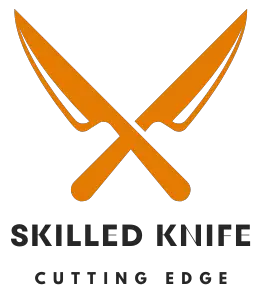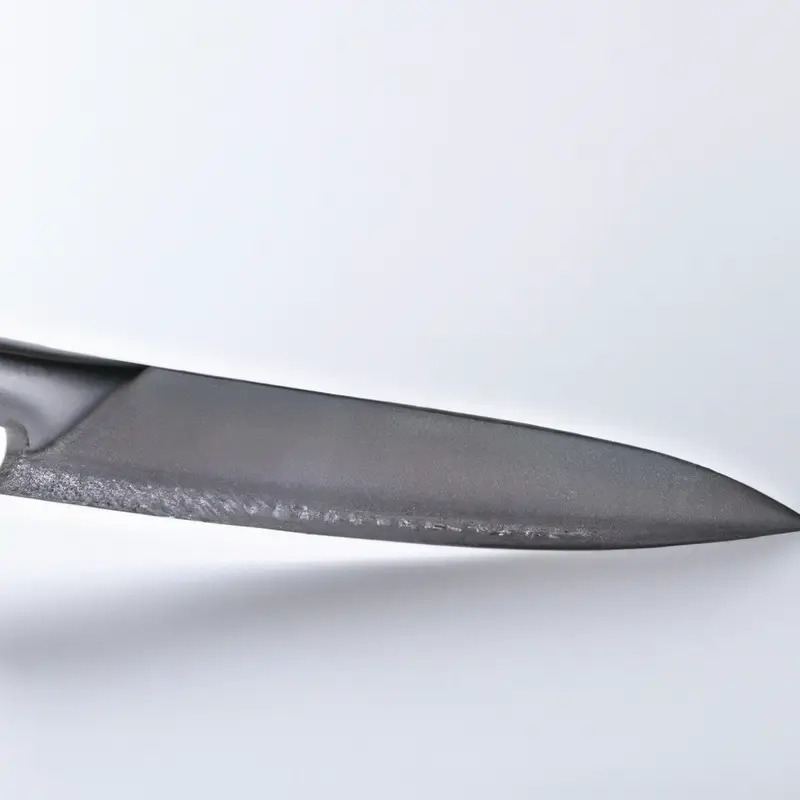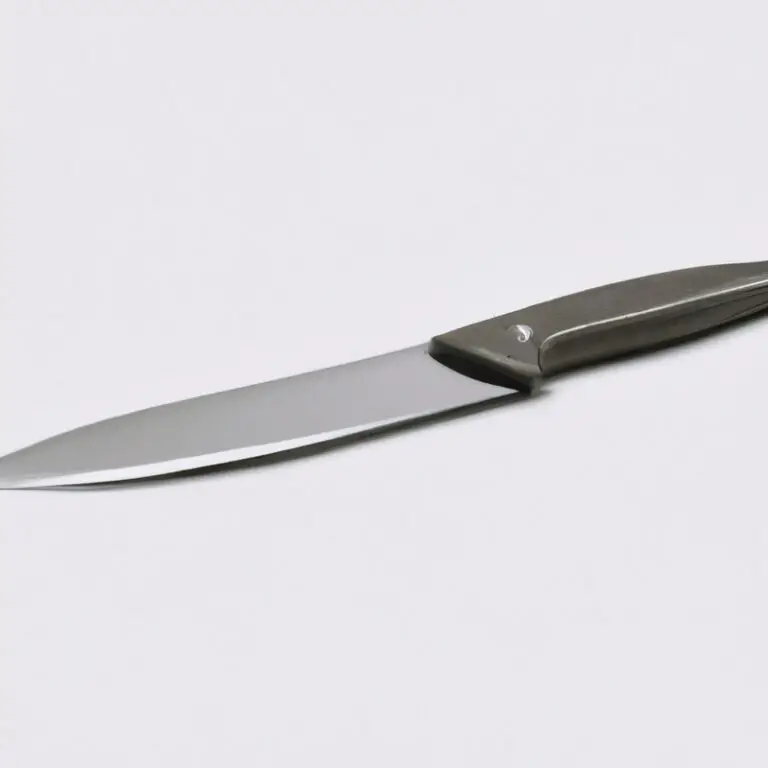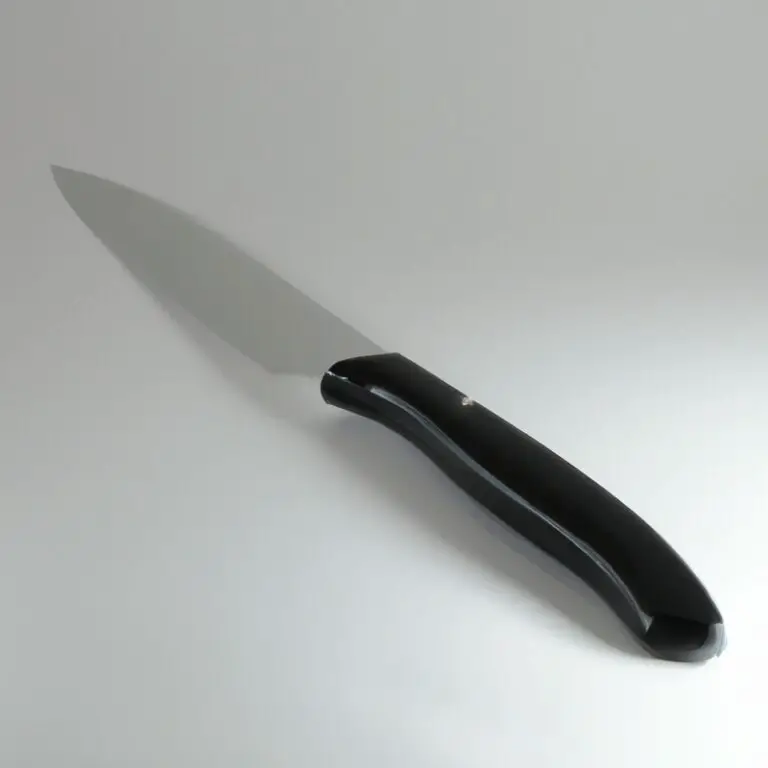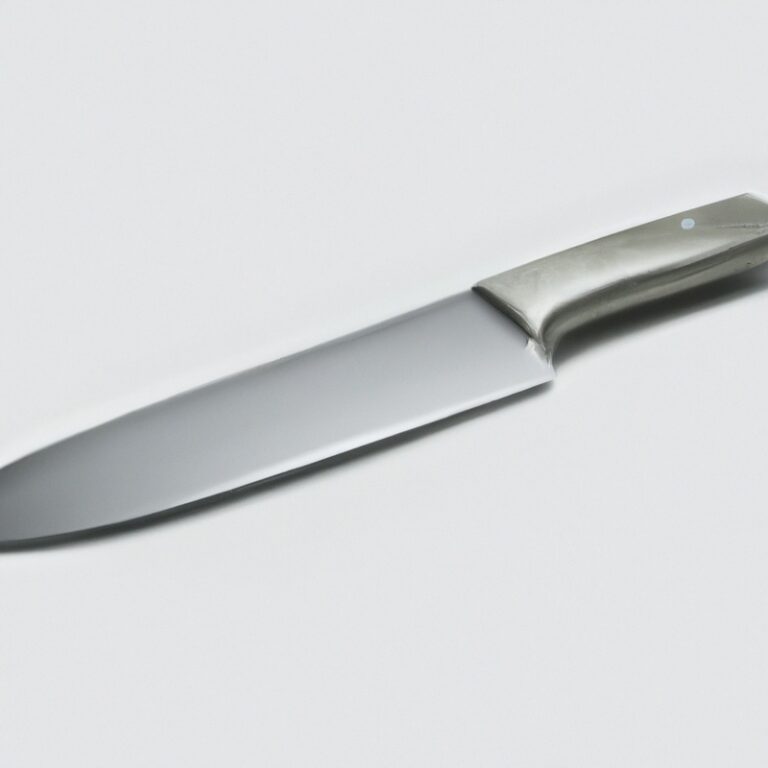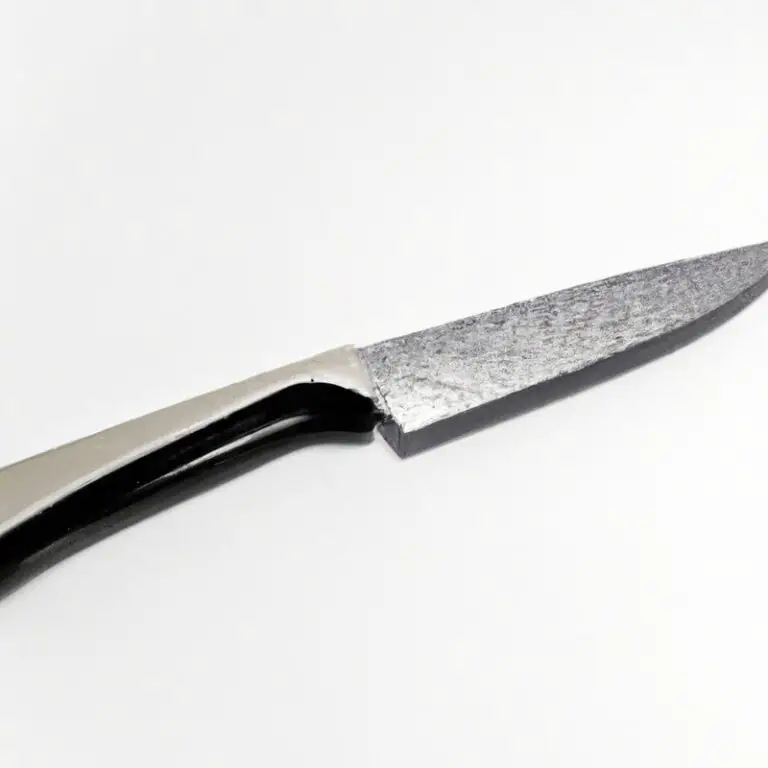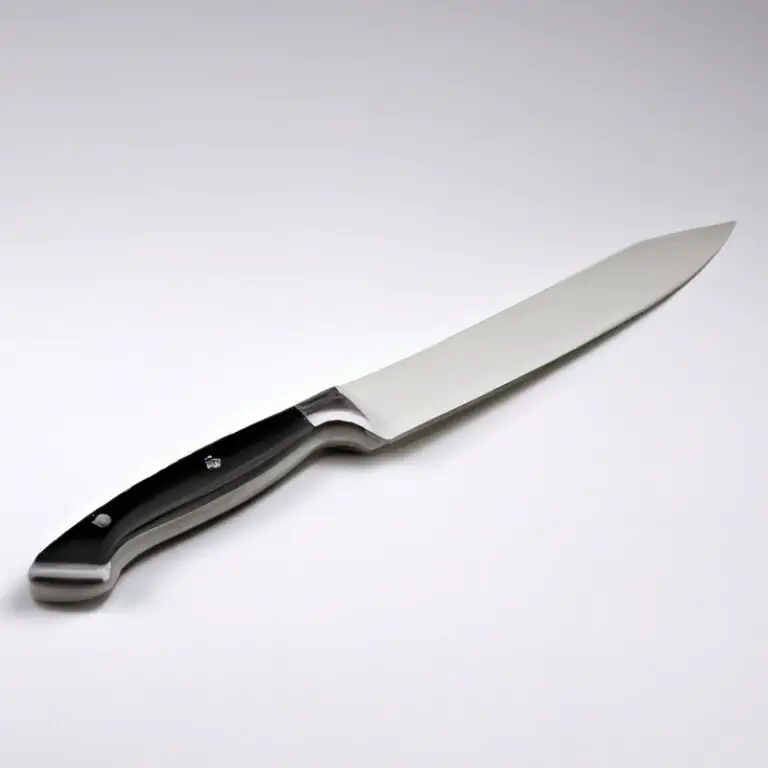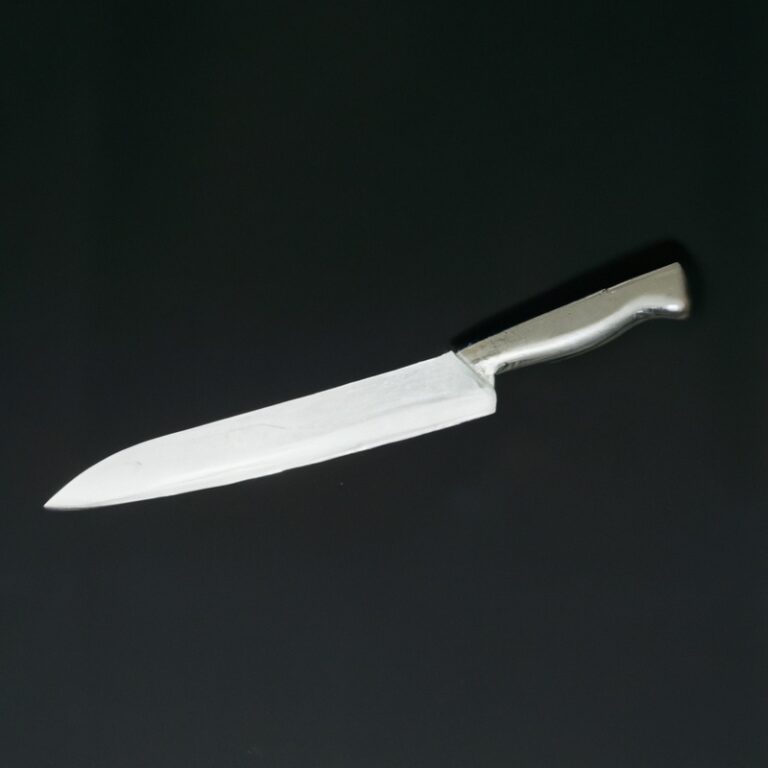How Does Knife Steel Influence Corrosion Resistance In Kitchen Knives?
Key Takeaways:
- Different types of steel used in kitchen knives exhibit varying levels of corrosion resistance.
- Factors such as composition, hardness, and surface finish of knife steel affect its susceptibility to corrosion.
- Stainless steel alloys are typically more resistant to corrosion than carbon steel.
- Proper maintenance and care can significantly extend the lifespan and corrosion resistance of kitchen knives.
Have you ever wondered why some kitchen knives stay rust-free while others succumb to corrosion? It all boils down to one crucial factor: knife steel.
As a passionate chef and knife enthusiast, I’ve delved deep into the science behind corrosion resistance in kitchen knives.
In this blog, I’ll guide you through the fascinating world of knife steel, explaining how it directly influences a knife’s ability to withstand rust and stains. From the types of steel to the impact of alloying elements and heat treatment, we’ll explore how different factors can make or break a knife’s resistance to corrosion.
So, let’s unravel the secrets of knife steel and unlock the key to long-lasting, rust-free kitchen knives.
| Knife Steel | Corrosion Resistance |
|---|---|
| Stainless Steel | Highly corrosion resistant due to the addition of chromium and nickel. Resistant to rust and staining. |
| Carbon Steel | Moderate corrosion resistance. Can develop a patina which helps protect against further oxidation. |
| Damascus Steel | Moderate to high corrosion resistance, depending on the specific composition. Low carbon content helps reduce susceptibility to rust. |
| High Carbon Stainless Steel | Offers a balance between carbon steel and stainless steel. Higher carbon content provides better edge retention, while stainless properties reduce corrosion. |
Understanding the Importance of Knife Steel in Corrosion Resistance
What is Knife Steel?
Knife steel refers to the material used in making the blade of a knife.
It determines the knife’s durability, sharpness, and corrosion resistance.
Different types of steel have varying levels of carbon, alloys, and heat treatment, which influence their performance.
High-quality knife steels have excellent edge retention and offer resistance to rust and corrosion.
Understanding the composition and characteristics of knife steel is essential in choosing a knife that meets your needs and preferences.
The Role of Corrosion Resistance in Kitchen Knives
Corrosion resistance plays a vital role in the performance and longevity of kitchen knives. It refers to the knife’s ability to resist damage caused by exposure to moisture, acids, and other corrosive substances.
A knife with good corrosion resistance will be less prone to rust, staining, and deterioration.
This is especially important in a kitchen setting, where knives often come into contact with various food and liquids. Corrosion resistance ensures that your knives remain durable, hygienic, and safe for use.
It also reduces the need for frequent maintenance and replacement, ultimately saving you time and money in the long run.
Why Corrosion Resistance Matters in Kitchen Knives
Corrosion resistance is incredibly important in kitchen knives, and here’s why:
- Prevents rust: Kitchen knives are exposed to moisture and acidic substances, making them prone to rust. Corrosion-resistant knives are better equipped to withstand these conditions and maintain their sharpness and longevity.
- Preserves hygiene: Corrosion-resistant knives are easier to clean and sanitize, reducing the risk of bacterial growth and contamination in the kitchen.
- Ensures durability: Knives with good corrosion resistance are less likely to develop pitting or staining, which can compromise their structural integrity. By choosing a corrosion-resistant knife, you can ensure its long-lasting performance.
- Enhances aesthetics: A knife that is resistant to corrosion will retain its original appearance for a longer time. This is especially important if you value the visual appeal of your kitchen tools.
By prioritizing corrosion resistance in your kitchen knives, you can enjoy the benefits of durability, hygiene, and aesthetics while maintaining your knives’ performance for years to come.
Factors Influencing Corrosion Resistance in Kitchen Knives
Types of Knife Steel and Their Corrosion Resistance
Different types of knife steel exhibit varying levels of corrosion resistance. Here are some commonly used knife steels and their corrosion resistance:
- Stainless Steel: Known for its excellent corrosion resistance, stainless steel is a popular choice for kitchen knives. It contains a minimum of 12% chromium, which forms a protective oxide layer on the surface.
- High Carbon Steel: While high carbon steel offers superior edge retention and sharpness, it is more prone to corrosion. Regular maintenance, drying, and oiling are necessary to prevent rust.
- Damascus Steel: Damascus steel is known for its beautiful patterns and excellent strength. Its corrosion resistance varies depending on the specific alloy used and can range from good to excellent. Regular care is still important to maintain its longevity.
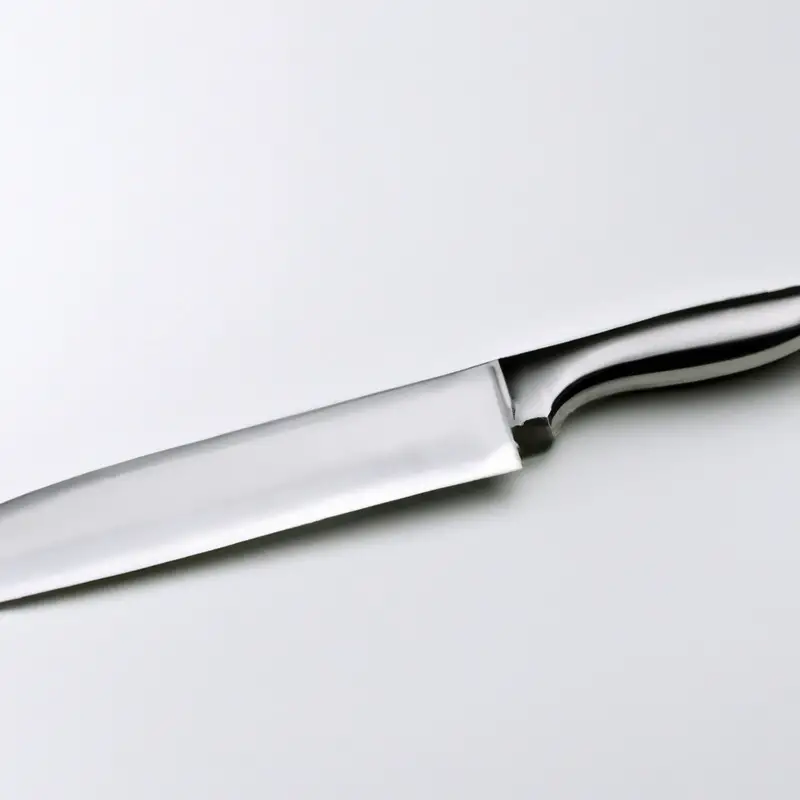
Alloying Elements and Their Effects on Corrosion Resistance
Alloying elements play a significant role in determining the corrosion resistance of knife steel.
Chromium is one such element that forms a protective layer, preventing oxidation and rust.
Molybdenum enhances the resistance to pitting and crevice corrosion.
Nickel improves resistance to acids and alkaline environments.
Vanadium increases hardness and wear resistance.
Titanium and niobium contribute to overall corrosion resistance as well.
Understanding these elements and their effects is crucial in selecting a knife steel that can withstand corrosion and maintain its performance over time.
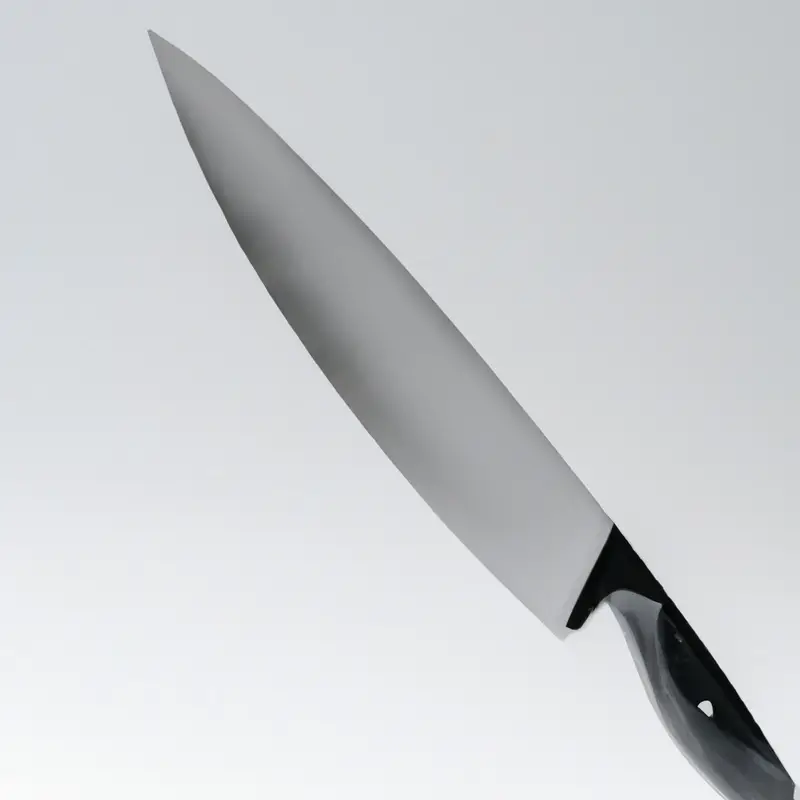
Heat Treatment and Corrosion Resistance
Heat treatment plays a significant role in the corrosion resistance of kitchen knives. During heat treatment, the steel undergoes processes like quenching, tempering, and annealing, which alter the structure and properties of the metal.
Proper heat treatment can enhance the corrosion resistance of the knife, making it more resilient to rust and oxidation.
It helps in the formation of a protective layer on the surface of the blade, preventing the interaction between the steel and corrosive elements. Different heat treatment techniques and parameters can be employed to optimize the corrosion resistance of knife steel, ensuring long-lasting performance in the kitchen.
Popular Knife Steels and Their Corrosion Resistance
Stainless Steel and Corrosion Resistance in Kitchen Knives
Stainless steel is a popular choice for kitchen knives due to its excellent corrosion resistance. This type of steel contains a minimum of 10.5% chromium, which forms a protective layer on the surface of the blade and prevents rusting.
The chromium content also enhances the knife’s overall durability and longevity.
Moreover, stainless steel is easy to clean and maintain, making it a practical option for everyday use in the kitchen. Whether you’re a professional chef or a home cook, investing in a stainless steel knife can ensure that your blades stay sharp and free from corrosion.
High Carbon Steel and Corrosion Resistance in Kitchen Knives
High carbon steel is a popular choice for kitchen knives due to its excellent durability and sharpness. However, it is important to note that high carbon steel is more prone to corrosion compared to stainless steel.
To maintain corrosion resistance in high carbon steel knives, it is crucial to regularly clean and dry them after use.
Additionally, applying a thin layer of food-safe oil can help protect the steel from moisture and prevent rusting. Regular maintenance and proper storage are key to preserving the longevity of high carbon steel knives.
Damascus Steel and Corrosion Resistance in Kitchen Knives
Damascus steel is known for its distinctive and beautiful patterns, but it also offers good corrosion resistance in kitchen knives. This is due to the combination of different steel alloys used in its construction.
The layers of high-carbon steel help provide strength and sharpness, while the softer stainless steel layers enhance corrosion resistance.
However, it’s important to note that the corrosion resistance of Damascus steel varies depending on the specific composition and heat treatment. Regular cleaning and drying after use, along with proper storage, will help maintain its corrosion-resistant properties for longer.
Tips for Maintaining Corrosion Resistance in Kitchen Knives
Proper Cleaning and Drying Techniques
Proper cleaning and drying techniques are essential for maintaining the corrosion resistance of kitchen knives.
After each use, make sure to wash your knife with warm, soapy water, and a non-abrasive sponge.
Avoid using harsh chemicals or abrasive cleaners that can damage the steel.
After washing, thoroughly dry the knife with a soft cloth or paper towel to prevent moisture from lingering on the blade.
Pay extra attention to the handle, as moisture can seep into the material and lead to corrosion.
To ensure thorough drying, you can also air-dry the knife by placing it in a well-ventilated area.
Avoid leaving the knife in a damp dish rack or sink, as this can promote the growth of bacteria and lead to corrosion over time.
Proper cleaning and drying techniques will help maintain your kitchen knives in optimum condition.
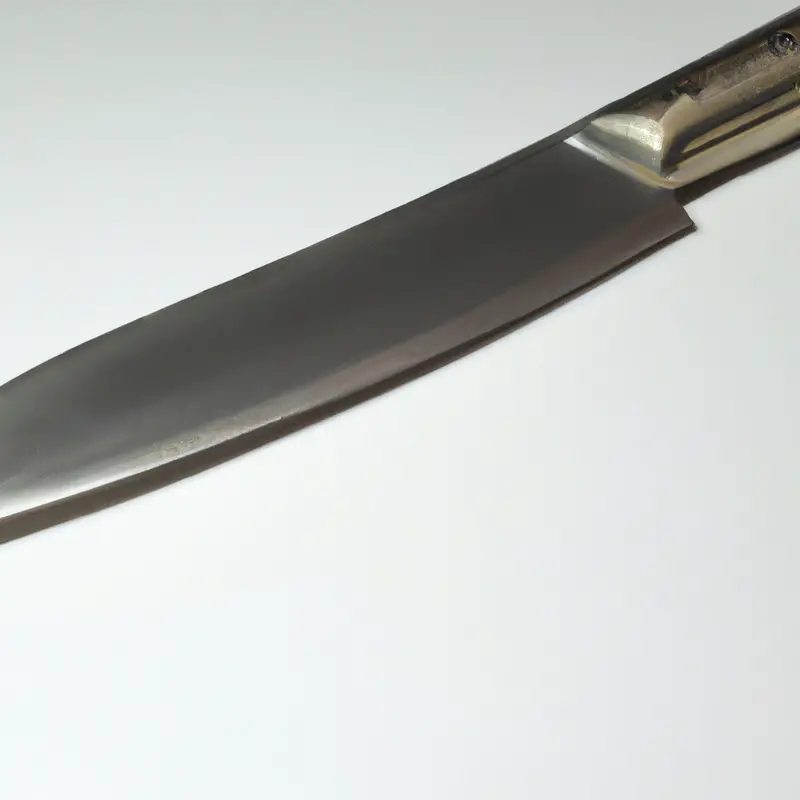
Storage Methods to Prevent Corrosion
To prevent corrosion in your kitchen knives, proper storage methods are essential.
Here are some tips:
- Store your knives in a dry place away from moisture and humidity. Avoid leaving them in the sink or dishwasher.
- Consider using a knife block, magnetic strip, or knife roll to keep your knives organized and protected.
- Clean and dry your knives thoroughly before storing them. Moisture can lead to rust and corrosion.
- If using a knife block, make sure the slots are dry and clean to prevent moisture buildup.
- Consider using knife sleeves or blade guards for extra protection when storing your knives in drawers or traveling.
Remember, proper storage is crucial for maintaining the corrosion resistance of your kitchen knives and extending their lifespan.
Regular Maintenance and Oil Application
Regular maintenance and oil application are key to maintaining corrosion resistance in kitchen knives.
Here’s what you need to know:
- Regular Maintenance: Clean your knives immediately after use with warm soapy water and a soft cloth or sponge. Avoid using abrasive cleaners or scrubbers that can damage the knife’s surface.
- Drying: Thoroughly dry your knives after cleaning to prevent moisture buildup and potential corrosion. Pay special attention to the areas around the handle and blade junction.
- Oil Application: Apply a thin layer of food-safe oil, such as mineral oil or coconut oil, to the blade and handle regularly. This helps create a protective barrier against moisture and prevents rust.
- Storage: Store your knives in a dry and well-ventilated area. Avoid storing them in wet or humid environments, as this can accelerate corrosion.
Final Verdict
The importance of knife steel in corrosion resistance cannot be overstated. Understanding the different types of knife steel, the role of alloying elements, and the impact of heat treatment is crucial in selecting a knife with excellent corrosion resistance.
Stainless steel, high carbon steel, and Damascus steel are popular choices, each with its own level of corrosion resistance.
To maintain this resistance, proper cleaning, drying, storage, and regular maintenance is essential. By prioritizing knife steel and implementing proper care techniques, you can ensure that your kitchen knives remain corrosion-free and perform at their best for years to come.
